Don Stuss 1941-2019Don Stuss was one of the foremost contemporary neuropsychologists, world leader in the neuroscientific study of the prefrontal cortex, and founding director of two leading neuroscience institutes (the Rotman Research Institute and the Ontario Brain Institute). Don’s science always started with clinical observations and was centered on questions central to humanity, such as how we view ourselves and others and how we successfully function in the world. In the same vein, Don brought his humanity into all of his interactions, leaving many indelible impressions throughout the world in his personal and professional networks.
The purpose of this website is for people touched by Don to share thoughts and memories as we celebrate his life and grieve his loss. To leave a comment on the page please click here. If you have any photos that you would like to share in the gallery please send them in an email to [email protected]. -Brian Levine - B |
|
Don was one of my graduate advisors in Psychology at the University of Toronto from 2002 until I defended my PhD in 2009. To the best of my knowledge, I was the last graduate student that Don took on – and I feel so lucky that I managed to snag the spot! Don was phenomenal advisor – both academically, and personally. Despite the many demands on his time, he always made time for me, and for the lab. Academically – he demanded precision and logic in everything from email correspondence to grant proposals and theses and neruopsych assessment. I remember sometime early in my graduate career, when I was learning to administer neuropsych tests, Don stayed late one night to play the role of one of my patients (and he was tough!). He wouldn’t let me test anyone until I had passed HIS tests. There I was, alone in a Rotman test room with this intellectual giant who was taking the time out of his schedule to train me. And, I might add (and he made this clear), to protect any future patients or subjects from the harm that might be done if a test was not administered correctly. He cared not only about my training, but about the people we were studying. Don also always took care of his lab. From drinks on Avenue, to theatre tickets and pizza, trips to Toronto Island for BBQ, the One of a Kind Show, or dinner at his home, we always had something fun planned as a group, with Don. In fact, two weeks before I defended my PhD, Don had the whole lab up to his cottage for the weekend. He and Lourenza made us ribs, we sat in the hot tub and hiked. And I also got to practice my defense talk. It was just what I needed during a very stressful time. I will be forever grateful to Don for that kind of support – academically, and emotionally. On a more personal level, Don also always encouraged balance in my life. I can think of many examples of this, but two, in particular, stand out in my mind. The first was back in 2004 when my Grandfather was in his final months suffering with Alzheimer’s Disease. I went to Don looking for advice about whether I should take a scholarship I had been offered to study the Frontal Lobes in Greece for six weeks, or stay in Toronto and be close to my Grandpa. I expected him to push me to take the opportunity, and remind me of how lucky I was to have the chance. But instead, we ended up speaking about life and death – about regrets and decisions. I didn’t go to Greece that summer, and I don’t have any regrets about that. The second is when I was finishing my postdoc at the University of Michigan, and I was expecting my first child. I felt a lot of conflict about how to proceed with life as an academic, and a Mother. Again, I expected Don to encourage my academic pursuits. And he did. But he also understood my conflict. He told me that my children would thank me for staying close to them, if that’s what I decided to do. In a way, it felt like Don had granted me the freedom of choice. Don knew that there were some things in life that were more important than work and study. Even a short conversation with Don – likely conversations that he didn’t even remember having years later, left lasting impressions on me. I feel so lucky to have been trained by Don. And I am so incredibly sorry to see the world lose such great mind, and human being. My deepest condolences to all Don’s family and dear friends. He will be greatly missed. His legacy will undoubtedly live on through his science, his teaching, and all the people he touched.
0 Comments
To me, as to so many, Don was a mentor, a supporter, a teacher and a friend. His mentorship, vision and leadership made him unique in academia, but his kindness, smile, humour and sensitivity made him a uniquely special person. He has been an inspiration personally and professionally, and his incomparable grace, class and humour changed the lives of so many people - patients, clinicians, students, researchers, colleagues and friends. I am blessed to count myself among them.
I met Don in April 1989 when I worked for him for 2 months as a temp. During this short period, he was the nicest boss I had worked for. As my English was poor, he was patient and tolerant with my work. He was like my English teacher and never complained about my mistakes. During a recent visit, he even mentioned that I had never made any spelling mistakes when typing out his letters. In 1991, I came back to work full time at the Rotman Research Institute until I retired in 2010. During this period, I could see that Rotman Research had grown to become a world renowned research institute under Don's remarkable leadership. His passing is a great loss for me. He was a great boss and friend. I miss you, Don!
I first met Don in Boston in 1992 as he was visiting my internship supervisor, Bill Milberg. I was working with Bill developing tests of executive or prefrontal functioning, which we found to be inadequately assessed with standardized instruments. Don and I had an instantaneous connection not just around this clinical/scientific question, but personally. At one point during that visit I saw him pull out a fancy pen to write something down. I commented on the pen, which was an inappropriate thing for me to do given our difference in status. Don laughed and immediately made an excuse, saying it was a gift from a trainee. There is a lot in that interaction. First, a trainee thought to give him a fancy pen as a gift, probably because he had a huge impact on that trainee’s life (as he did on mine, which you will see in a minute). Second, he disavowed the fanciness of the pen. It was OK to receive it as a gift but it was not something Don would seek out on his own, because he was completely lacking in pretense. Third, he was unfazed by the brash comment on his pen, because Don, in spite of his achievements, never thought of himself as higher status than anyone else.
Don and I continued to correspond about executive functioning assessment. Before long, a postdoctoral position at the Rotman Research Institute (RRI) was advertised. I was hesitant. I had nearly completed my clinical postdoctoral training and I was already an independent licenced psychologist. Completing another fellowship would have been costly in terms of money and time. Moreover, I had little research background and therefore was not competitive for a research postdoctoral fellowship. But I checked with Don and he said I should apply. Later I learned that as RRI director, Don made sure all other RRI scientists got a postdoc before him; he decided that it was finally his turn. I also learned that there was pushback against my application (by people who have since become my friends and colleagues), for good reason. It wasn’t a good application – not one that I myself would have given much thought to as a principal investigator. I still don’t know why Don fought for me, but if he hadn’t nothing I have achieved since in my career would have happened. I did the work, but Don opened the door for me at a time when no one else would have done so. When I arrived in Boston at the VA, it was on the descending limb of the peak curve as a world centre of cognitive neurology and neuropsychology, but there was a lingering impression of what it must have been like; a lot of the key players, such as Edith Kaplan, Harold Goodglass, and Laird Cermak, were still around. I imagine that the RRI in the 1990’s had similar impact on the field of cognitive neuroscience as did 1980’s Boston on behavioural neurology. It is hard to describe the feeling of that period. The level of excellence was world-class, but we were a family. Don ensured that with his own behavior and by recruiting like-minded people. At a day-to-day level, there was little separation among the giants in our field and the trainees. Everyone loved Rotman Rounds and the Rotman conferences, where the likes of Don, Endel Tulving, Gus Craik, and Morris Moscovitch would do battle with visitors like Tim Shallice, Pat Goldman-Rakic, and Deepak Pandya, and trainees were right in there fighting and scoring points. Before long, many of those trainees would become leaders in the field. For us who were there in Toronto, it felt as though there was no better place in the world to do cognitive neuroscience, considering the technology and – more importantly – the people with the ideas about what to do with it. Don told me that he turned down an offer to do the second edition of his (and Benson’s) classic 1986 book, The Frontal Lobes, because by the 1990’s the field had grown too big. But Don built research institutes where he and others realized the vision of clinical-scientific study of mind and brain that was seeded in his 1986 book. Inevitably, the RRI grew and evolved. That’s OK. But Don’s legacy remains in the strength of our relationships. Let me share a couple more stories. Don got interested in the cerebellum and cognition in the mid-2000s. Of course, he knew the frontocerebellar connectivity backwards and forwards, and there was a literature on this. One day Don gave a Rotman rounds outlining his thoughts. It was basically done off the top of his head; it was not one of his better talks. After the talk, Gordon Winocur said to me, “Only Don Stuss could give a talk like that.” In other words, only Don had the chutzpah to attempt a talk with so little prep. Nonetheless, the ideas were solid, and Don went on to publish several papers (with Tom Schweizer) based on his subsequent studies in patients with focal cerebellar lesions. One morning we arrived at work to find one of Don’s research assistants crying. She had stayed up late and was overwhelmed. Don said nothing. He instantly took her by the hand and into his office for a chat. The way he did it would have been infantilizing had it been done by anyone else, but it was just what she needed at that moment. When we talked about it later, he said “She just had too many things in the hopper.” I met Don as a young man with few real problems or cares in the world. That soon changed when I lost my father to pancreatic cancer in the summer of 1994, followed rapidly by the numerous ups and downs of adult life. In 1994, Don encouraged me to make the frequent trips home to Detroit on Highway 401 to support my parents in the last weeks of my father’s life. Don was one of the first people I called after my dad died. I could not have imagined the friendship with Don that followed, and that this friendship was itself to be lost to cancer almost exactly 25 years later. Sept 05, 2019
It breaks my heart to write this letter of condolence to the family of Dr. Donald Stuss. He was a former boss, mentor and friend to so many and he will be profoundly missed. On a personal note, and on behalf of my husband, Vidal, and children, Desiray, Candice and Johnny we want to thank you for sharing Dr. Stuss with us. He insisted that we call him Don, but out of respect, we never did. I hope you forgive my intrusion during this personal time, but there are a few stories I would like to share with you. I hope they make you smile during this difficult moment. I met Dr. Stuss in the early 2000s while working on his Cognitive Neurorehabilitation project. In applying for the Research Assistant position, the job description asked for someone with a background in statistics and psychology. I did not have either, but turned up for the interview anyway. When the interview started, Dr. Stuss asked me to tell him something about myself. I immediately said that I did not have the prerequisites for the job, but I did have passion and drive and I was a quick learner. “You can’t teach that stuff. You can teach me stats and psych and I will learn really fast. But you can’t teach passion.” I said. He took a chance and hired me at a time when I desperately needed the job. By the end of the assignment, I asked if he could write a reference letter for me to apply to do my Master’s in Science. I had always wanted to be a doctor, but with my terrible undergrad grades, I needed to take a bit of a detour. He agreed to write the letter, but indicated that I was better suited running a business, than sitting behind a bench in a lab. Although I was disappointed, I used the letter to apply for my first MBA and started my first company ReSolve Research Solutions, Inc. Over the ten years which ReSolve operated (2005 - 2015) we won the 2007 Black Business and Professional Association’s Harry Jerome Award in the Young Entrepreneur of the Year category and the 2012 Toronto Board of Trade’s Entrepreneur of the Year. He had a keen eye, and was the type of boss that wanted to see each employee move on to greater success. He encouraged me to do the little things really well, and not worry to much about the big things I could not control. A lesson I use to this day. When I lost the by-election in 2014, Dr. Stuss mentioned that he was passing through the Durham Region for work. I asked if we could meet for lunch and he agreed. As we got talking, I mentioned that I was struggling with depression. He took the time to tell me the story of his own struggles, and in the end said that if I was ever in trouble, I should call him immediately. “How would I know if I am in trouble?” I asked. He simply said that I would know, and that I should use the number. He closed by saying that I should think of my mental illness as a gift that allowed me to rest and take time for myself. I would not truly understand his advice until after I was in a crisis state in early 2016. It was time to use the number, because I did not know where else to turn and I felt everything about me slipping into darkness. Dr. Stuss called and emailed and phoned until I was seeing the best doctors in the country. He is part of the reason that I am still here today, and I am grateful for his kindness and help. In 2018, when he received the Order of Canada, I sent him a text congratulating him. “Well thank you Ma’am.” He responded. “ How did you find out?” I told him that I knew things, but most importantly, I loved him. That is just it. I loved him, because for some reason, he took the time to see me when I thought no one saw me. Outside of my parents and immediate family, there are two people who I credit publicly with changing my life. One is Dr. Carol Greenwood, and the other was Dr. Stuss. Thank you from the bottom of my heart for him. He was a gentle, courageous and wonderful man. I will continue to celebrate him, and honour the legacy of every gift he has given me in everything I do. With Love, Celina I had the honour (and luck) of working with Don at both the Rotman and OBI! I first met Don in 2002 after he agreed to hire me as a summer student. I was a mediocre undergraduate at best, and for some reason Darlene Floden had convinced him to give me a shot. Dar, who had interviewed me because Don was out of town, must have been desperate! Regardless, this summer position would shape my professional trajectory immensely. I went on to complete my undergraduate thesis with Don that fall, and then worked in his lab as a RA, before heading off to graduate school. As I reflect back on that time, what stands out is not the science or research (which were obviously impressive) or the unequivocal fact that Don was an exceptional teacher (which was also very apparent), but just how extraordinarily approachable he was. Don was warm and welcoming. He was genuinely interested in you as a person. Don cultivated a collegial environment, and instilled the importance of camaraderie both within his lab and amongst the various students, RAs, and scientists at the Rotman. (I still fondly remember him coming into the lab on a Monday at 3:55pm firmly saying “What are you doing?! We have rounds!” And from that day forward I never missed a talk during my time at the Rotman, no matter what the topic was.) Despite his hectic schedule Don always made time for lab dinners and excursions – and kindly hosted us at his home and cottage on various occasions. Over the years Don continued to provide guidance and mentorship. He was always generous with his time, giving many pearls of wisdom as I fumbled through grad school and my postdoc. Then, almost 10 years after leaving his lab for grad school, I was incredibly fortunate to land a position on one of the OBI’s Integrated Discovery Programs. Once again I was working with Don - but this time I was a colleague! Those early days on ONDRI were challenging. Having just completed my postdoc, I was joining a team of remarkable senior scientists and clinicians, tasked with leading the neuropsychology aspect of the program. It was daunting to say the least. But, as always, Don was there to offer sage advice and support, as well as a laugh or two. His ability to bring people together was absolutely astonishing. I will always be grateful for what Don did for me professionally and personally (he even facilitated my recent re-location to Halifax!). Don - Thank you for your generosity, guidance, and patience. Thank you for teaching me and showing me the importance of collaboration and camaraderie. And thank you for giving me a shot so many years ago.
In my first social meetings with Don I was greatly taken by his outgoing personality, his warmth and humour, yet also by his obvious seriousness about science and indeed fundamental seriousness about how life should be lived. My first professional interactions with him were in the context of the search committee to appoint the first Director of the Rotman Research Institute. We had an excellent slate of candidates, but Don was outstanding in conveying his enthusiasm and his vision of how a new research group might evolve. Joe Rotman was determined that Don should take on the job, and Joe was a hard man to turn down! So Don was duly installed as Director and with his first few appointments, padded out by the involvement of several willing locals, made the RRI an international success story in an astonishingly short time. He was an excellent clinician and research neuropsychologist but a near-genius at scientific management. Through a mixture of creative ideas, networking, cajolery and plain hard graft he put together a coherent group of scientists who enjoyedworking together under his benign yet deeply committed leadership. He sometimes employed quite wily methods to get his way. I remember one fraught meeting with a U of T department which ended with Don making his (generally disfavoured) case in a highly emotional outburst and then storming out of the room. I followed him out, concerned about his apparently out-of-control reaction, but he immediately turned to me with a big grin; “So – how did I do?” Impressively, as it turned out, his arguments were adopted! After briefly ‘retiring’ from the RRI he was persuaded (Joe Rotman again!) to take on the new Ontario Brain Institute, and again made this very different group a huge success in a very short time. He now had to deal with top-ranked politicians and civil servants as well as with top medical researchers and hospital presidents from across the province, but again rose to the challenge – to the benefit of brain research and mental health across Ontario. All part of the Stuss legacy. Don was hugely influential in my own career. Like Endel Tulving I encountered mandatory retirement from U of T at age 65, but Don took me on as a Rotman scientist, enabling me to extend my research career for almost two further decades. My wife and I became close friends with Don and his family, first with Kaaren and then with Lourenza, sharing good times, too much food and drink, but always with a sense of fun. On one trip to the US we passed quickly through a small town, and glancing down a side street both Don and I saw a big sign saying ‘Brain Institute’. Intrigued by this unlikely discovery we returned the next day to investigate, only to find it was actually ‘The Brian Institute’ (see the piece by Mick Alexander!) – an Institute whose purpose was unclear to us. Nonetheless, Don and I insisted on having our pictures taken by the sign, giggling like schoolboys, while Institute staff peered at us wonderingly from their windows. Finally, I append a picture of Don and myself on a trip to the Alps, hoping for a part in The Sound of Music – we never heard back! Fun times; I’m so glad to have had Don in my life and will miss him greatly. I had the pleasure of working with Don from 2011-2016 during his tenure as Founding President and Scientific Director at the Ontario Brain Institute. After his retirement, I continued to meet with Don regularly for monthly mentorship sessions, which turned into discussions about life and sampling microbrew or scotches. He brought energy and vivaciousness to all discussions. During this time Don taught me much of what I know about management and leadership. Some of his teachings stemmed from his research on frontal lobe function, while others are lessons he learned from his own life - things he wanted others to "get right". These "gifts" will live on and be shared with all of those who Don mentored. I wanted to share these gifts here.
"The Gifts of Don" Principles Principles Principles - Rather than setting hard and fast rules start with principles that everyone can buy in to - “How is it that we want to be?” Context Context Context - Critical to set the stage for any discussion - Ensures people are on same page Giddy-up vs. whoa - Managing energization is essential to getting the most out of people - Everyone has a unique curve - You can manage this curve - shift it through things like task setting - Bring energy with you - Don always brought energy to meetings Celebrating success - Part of managing energy and motivation Acknowledge success - Not just most recent - need to acknowledge the distance traveled Value of ownership - Trying to convince people to do something can work - But giving someone ownership of something is enduring Hiring well - It’s better to not hire than to hire the wrong person - The first question should be: will this person buy into our principles? (vs. are they the most experienced, fastest, etc.) Managing up, down, and across - To clear a path toward success you need to manage up, down, and across - You also need to allow yourself to be managed Work / life balance - Don only threatened to fire me once. My life was not in balance. He insisted I be home for dinner ever night with my family. If he sensed I was neglecting them, he would no longer require my services :) - He followed with "you can work until 4am if you need to, but you need to spend evenings with your family" The importance of relationships - Relationships are foundational to working together and having impact Hugs vs hammers - The Don Stuss hug - kindness and humanity are the best tools in getting things done - Bringing people into the fold What incredible insight and wisdom. Gifts that Don gave us. I will never forget his teachings, his smile, his wisdom, and his love of life. They have forever shaped who I am. Ya tebe looblyoo Danilo. Many of the conversations about Don touch on the same characteristics: integrity, principles and ambition. I was privileged to have worked with Don when I joined the Rotman Research Institute in 1994 and quickly moved into the position of assistant director, helping him build on the vision he crafted. In that role, I got to see these characteristics play out over and over again, learning that if you stick to these, you will gain the respect needed to move things ahead. As I worked with him to expand the institute, we would sometimes get into conflicts over whether we should pursue an opportunity. No matter how prestigious or lucrative the opportunity, these conflicts would resolve when we considered whether it made sense according to the principles and if it would threaten integrity. That would always give us the answer. The other characteristic about Don that many mention was his absolute joy for life. He loved to laugh, and share his happiness. He made great efforts to make sure we all enjoyed working together, whether through “vest” or “hat” day or an excursion to the cottage. It was important for him that we actually wanted to be there. No matter how tough the task ahead was, he made sure we had fun. Don had great compassion. You saw this when you talked to him. He was genuinely interested in what you had to say no matter who you were. You saw this when you asked someone if they knew him. Their faces would immediately light up as they told their story of how they knew Don. To me, that was the essence that made Don who he was and why he had such a wide positive impact on so many. Integrity, principles, and ambition are empty without compassion. His compassion welcomed you to share in his vision, and by doing that sharing a bit of your own. That’s what made a him a great leader, and great mentor and a great friend. I will miss him. I first met Don Stuss when he was a masters-PhD student at the University of Ottawa and I was a new professor. He was working with T. Picton and R. Broughton on evoked potentials and sleep. I remember meeting him in the corridor accompanied by Ken Campbell. When I asked how their theses were progressing, they enthusiastically replied: We just discovered how the brain works!
I followed his career at U of Ottawa particularly in meetings of the sleep research community, but also as Chair of Psychology. On every occasion, he transmitted exceptional enthusiasm about research and clinical work. He contributed significantly to the development of our multidisciplinary collaborative program in Neuroscience. It was a major disappointment when he announced that he was moving to Toronto. We actually never fully recovered from this loss. I was extremely fortunate to have had Don as my PhD dissertation supervisor at the Rotman. Our research into the role of the right frontal lobe in humour and the cognitive and affective processes that contribute to humour provided numerous opportunities for very stimulating discussions and many laughs while designing our tests. He was a remarkable teacher and mentor and a brilliant scientist. He had high expectations while being extremely supportive and caring. I am forever indebted to Don for all that he taught me.
It is with great sadness that I learned of Don's illness and death. My heartfelt condolences to Don’s family and friends. Don and I were friends since high school when we both attended St. Jerome’s in Kitchener. Although our career paths diverged—Don became a scientist and I a diplomat--we stayed in touch down through the years, right up to his final days in Toronto.
It was evident already in high school that Don would be exceptional. Of the two of us, he was the stronger academically, I the better athletically, which Don would only grudgingly admit. (We both stood out in football and track. In preparation for games and meets we would retreat to Don’s mom’s diner where she served us chocolate milkshakes with raw eggs, a sports diet like no other!). Don had many talents but it was, of course, as a scientist and academic that he excelled. Recipient of the Order of Ontario and Order of Canada, Fellow of the Royal Society of Canada and of the Canadian Academy of Health Sciences, University Professor Emeritus of the University of Toronto and winner of many other awards, Don was pre-eminent in his field. But he wore his many honours admirably lightly. A patriotic Canadian, he was the child of immigrants and proud of his Ukrainian roots. His enormous contribution to science made him a poster boy of the benefits to Canada of immigration and integration. An unassuming academic star, an honest and exceptional talent, Don was always open to fun, kind to all and true to friends. They don’t make them like Don any more. I will miss him enormously. In the past few days it has become abundantly clear that Don touched the lives of many people in profound ways. I am no exception. I don’t remember if I had met Don before I applied for a job at the Rotman Research Institute, but it was obvious to me at my first visit that he had established something remarkable and that I wanted to be part of it. Luckily I got the job, and in February of 1996 (on one of the coldest days I had ever experienced) I made the trek by car from Washington, DC, to Toronto. Shortly thereafter I was sitting in my new office one day, trying to orient myself to my new surroundings and country, and Don walked in. He told me how glad he was that I was now a part of the Rotman family. This was a simple, and very kind gesture, and he probably had no idea of what it meant to me that day. The first part of my career had been very tumultuous and dispiriting, to say the least, and I considered myself very lucky to have escaped into what appeared to be a more healthy and collegial environment. When Don welcomed me that day, I knew instantly that I had made the right decision and my life had changed for the better. The promise of that day did indeed come true over the ensuing years and much of that was due to Don and his amazing ability to bring together people who not only could work together but also could enjoy each other’s company. I will always be grateful to him for giving me the chance to start over, and for all the friendship, laughter and great science that he brought into our lives.
I wish I could remember the exact venue where I first met Don - I envy those who can. I am sure it was after I felt like I knew him from reading his papers and/or hearing him talk. I do remember a meeting where he and Bob Knight were throwing a rubber chicken onstage if a speaker went overtime - it showed that wonderful wacky side of Don that lived so comfortably and so coherently with the serious, rigorous scientist and the thoughtful caring clinician. My other most vivid memory is an evening when we had Manhattans (the famous ones!) with Endel and Ruth Tulving ad then dinner at The Mill Inn -- including dancing. Don was a marvelous dancer. Unfortunately as a result of the Manhattans I could not feel my feet ... we made an interesting duo. Not everyone can be good at everything. But Don was -- research, clinical care, administration, mentoring, and friendship. Both the RRI and the OBI stand as testaments to his incredible intelligence and his deft organizational skills. It was when Don invited me to join he and Joe Rotman on the OBI board at the very beginning of OBI that I feel like we really made the transition to real friends. What a life lesson watching he and Joe in action. Don lived an incredible life and will always be in the hearts and memories of his friends.
It is an honour and privilege to have trained as a postdoctoral fellow under someone who is regarded as a pioneer in the fields of Clinical Neuropsychology and Cognitive Neuroscience and who had a tremendous influence on me long before I began my fellowship. Although my research as a graduate student was focused almost entirely on memory and the hippocampus, a lecture that Don gave to my graduate class added to my fascination with the frontal lobes from both scientific and clinical perspectives. I was determined to learn more under Don’s guidance, but Don had decided not to supervise another postdoctoral fellow at the time. Out of kindness, he agreed to meet with me to discuss career options, and I somehow left that meeting with a postdoctoral supervisor. I quickly learned that when Don decided to scale back, he ended up with twice as many obligations. However, few people in this world could build an internationally regarded research centre while balancing active, burgeoning research and clinical programs, and it is clear why so many clinicians, administrators, scientists, and patients, alike, admired and depended on Don’s talents and wisdom. In observing Don working with patients firsthand, I was fortunate to witness a unique blend of humanity and clinical insight. Because of scientist-clinicians like Don, real scientific discoveries are being translated into better practices. As a teacher, Don imparted the values of sharing ideas and of lifelong learning. I am proud to be a product of the unique and enriching environment that Don created at the Rotman. He had taken his many students and colleagues from Gerstmann to Geshwind to Gershwin, and it is comforting to know that we will continue to learn from him for years to come. May he rest in peace.
I met Don in Utrecht at a conference around 1994. What struck me most was his gusto – like big warm waves crashing onto a summer beach. He told me that first time I met him that he would like to head off into northern Canada on a motorbike – but he got distracted into creating the wonderful Rotman Research Institute instead. His enormous professional success with the Rotman was mirrored by a tough transition, personally speaking, from Ottawa to Toronto. He told me how he had turned down Joe Rotman at least three times before finally being persuaded to make that move which ended up benefitting our field so much. Don was proud of having been a monk and one sensed a sort of yearning in him that translated itself into his huge personal warmth and driving ambition for his science. At heart however, he was a clinical neuropsychologist – probably the best in the world – who for many years missed the very human and humane detective work that is unpicking the brain’s malfunctioning and trying to help rehabilitate it. He returned to that work late in his career. I salute a fine clinician, scientist… and human being.
If you are lucky in life, you will meet colleagues who become friends. If you are very lucky, some of them become real friends. If you are more than very lucky, you will meet someone who becomes what Don Stuss was for me for one third of a century.
Here is copy of a letter that I sent Don ten years ago. ***** May 19, 2009 Dear Don, It is hard to believe that it was 17 years ago, almost to the day, that you and I enjoyed the warm spring sunshine while sipping drinks outside the bar at the University's Faculty Club on Willcocks Avenue, and changed the world, or at least a tiny part thereof. How time flies! Remember, you asked me how things were with me. Rather than replying with the standard, perfunctory "Fine!" I blurted out that I had known better times. When you actually followed it up and wanted to know why, I told you that I had just received the final confirmation that I was out of my job in the psychology department as of the coming June 30. I had reached the advanced age of 65 and although I myself thought that there might be some life and spirit left in me for another few years, and that I would not mind staying on, the powers that be at the university thought otherwise. So, I had to go. You asked what my plans were, and I said that I would try to find some other place, another institution, somewhere, that might have any use of me. And, right there and then, you offered me a position as a senior scientist at the Rotman Institute. I asked you whether you had a vacancy, and you said no; I asked you whether you had a budget line for someone like me, and you said no; and I asked you how, under the circumstances, you could offer me anything, and you said not to worry, "things will work out." Things did indeed "work out," but of course not by themselves. They never do. In the saga that began on that May day on Willcocks Avenue, everything proceeded and ended as it did only because you applied your phenomenal, and now legendary, intelligence, energy, and management skills to the problem, and solved it. Your diplomatic missionary work in gently persuading Mrs Anne Tanenbaum and her family to support research in cognitive neuroscience turned out to be especially critical. The Tanenbaums at that time presumably knew Joe Rotman and his outstanding reputation, but they knew little about RRI, little about you, and nothing about me. So getting the Chair set up was quite a feat. Of course you could not have done without them and their goodwill, but without your imagination, initiative, and persuasive powers the whole venture would not have even reached square one. In no time at all, you took the initiative in getting me to meet Jack Cleghorn, the highly respected schizophrenia researcher at McMaster. He had been enticed by the UT's Medical Faculty to become the head of the to‑be‑established PET Center that was going to help Toronto schizophrenia researchers catch up with the two Ontario universities that were ahead of UT in this respect. After Cleghorn died in 1992, we had the good fortune of seeing Sylvaine Houle and Shitij Kapur in key positions at the Clarke Institute's PET centre, and suddenly we were involved in the new game in town‑‑PETting cognition, especially memory. I was elated when we "discovered" your old, and my own new, favorite part of the brain, the frontal lobes, as playing a major role in the brain/mind orchestra that is memory. That was less than 20 years after you had written, in your most important papers, about how little was known about the role of the frontal lobes in anything, especially cognition. That the Rotman Research Institute scientists delved into and then settled in functional neuroimaging became a pivotal event in RRI's evolution as a world centre in brain/mind sciences. It all happened early, and was timed perfectly, because of your keen appreciation of the global developments and the future of our science. Your ability to attract top people in functional neuroimaging of cognition, such as Terry Picton (he actually was first), Cheryl Grady and Randy McIntosh, and later others, to join your team was another brilliant achievement of yours. I know from long experience that it has always been difficult to persuade highly successful scientists from other countries, especially the US, to uproot themselves and come to the cold north. When they do come, it is usually not because of the money, but because of more important features of one's professional life, such as other people and the ambiance. As you well recall, you and I first met in Galveston, Texas, in 1985, at the conference on recovery from brain injury that Harvey Levin had organized. You gave a lecture on the use of experimental methods in objectively assessing frontal lobe deficits resulting from closed head injury. I did not know you at the time, but I remember being impressed with you and what you said, because clinicians that I knew at the time did not think and talk like you did. They did not talk about objective, reliable, experimentally oriented methods in studying the cognitively pathological brain. They talked mostly about psychometric tests. So, at the end of the conference, when we shared a cab to the airport in Houston, I was more than eager to find out more about your research and thinking. I very much liked what I heard. And when we agreed that something should be done about the Wechsler Memory Scale‑‑I for my reasons and you for yours‑‑I became your fan, without telling you about it, of course! But I did put the intelligence gathered in that taxi to good use when, a few years later, in Toronto, we were looking for the first Director of the newly established Rotman Research Institute at Baycrest, and I served as a member of the search committee. Today, the success story called the Rotman Research Institute at Baycrest is well known in the biomedical circles and research all over the world. So is your decisive and abiding leadership role in the story. Having been a close eyewitness to the happenings at our institute over the last 17 years, I can only echo all the praise and approbation that your colleagues, staff, postdocs, and students rightfully bestow on you. Personally, I believe I have benefited more than anyone else from the good that you have done in the world. When you offered me the position at RRI, back then, you changed my life. Indeed, you gave me a new life. I might have been able to do all right without your intervention, one way or another, but that is uncertain. What is certain is that the last 17 years have been among the very best that anyone can call his own. I have really enjoyed my association with the other scientists, students, and staff at the Rotman, and indeed with the whole Baycrest community. In many ways, however, the best part of it has been you. The feeling that my presence here has also been appreciated by many is naturally an added bonus. So, Don, my dear friend and colleague: You are known to have made jokes about having been my "boss." But I want you to know that, in all seriousness, I think of you above all as my saviour. For that, and for everything that you have done to me and for me, I will remain grateful to you forever. All good things in life come to an end, and so it must be with my long association with the Rotman Research Institute. You and I agreed some time ago that the next academic year will be my last one here, and that I will resign my current position, and retire, on June 30, 2010. Please take this letter as my acknowledgement and acceptance of that agreement. With my very best wishes, Endel I felt very sad by receiving the terrible news of Don passing away from Tim Shallice, who (an ironic twist) had introduced me to Don in Bressanone, Italy in 2006. A year after, I flew to Toronto as a post-doc, his “last post-doc” as he always enjoyed saying. During the years I spent working in his lab, I learned a great amount of science and life skills from him. Above all, I learned how to deal with the inevitable difficulties with an always positive and energetic attitude, from facing the rigid Torontonian winter with a Canadian smile plastered on my obviously Southern Italian face (also thanks to the Ushanka-style hat he gave me as a welcome present), to being able to wake up at 5 am in order to be (almost) on time for our 6.30 am weekly meeting, before his very busy day started with the mountain of administrative stuff he had to address as the (founding) Director of the Rotman. He taught me to fruitfully collaborate with many different groups while keeping my goals clear, to empirically chase mysterious cognitive constructs such as inhibition, criterion-setting or monitoring, the nuts and bolts of grantsmanship, to review others’ work by raising even the most serious concerns through constructive elegance, without the needlessly frantic and harsh criticism so typical of a young post-doc as I was. He coached me on how to endure working hard but without forgetting to take well-deserved, regenerative breaks from time to time, like the unforgettable weekend we had at his beloved cottage, a play at the Four Season Centre, my first Canadian Football match or the delightful picnic by the Ontario Lake together with his special lab members, or even a sparkling discussion about the ROBBIA model in front of a good beer at the pub. He was clearly a respected boss, for me and for many others, but he never forgot, not even for a single moment, the “human” side. For instance, once he knew I was going to be alone (and likely lonely) during a Christmas eve. He did not hesitate to invite me to join him, his daughter and her partner, for a Ukrainian dinner at his place. I will never forget that fantastic evening, not just because we had a shot of vodka, well… a shot before every course (and there were 12 delicious dishes!) but, above all, because of the attention to the details that count that he demonstrated with that invitation. I will conclude this note with one last anecdote, the same story I reminded him in what turned out to be our last email exchange around mid-July 2019. Since he was attending a conference in Sicily in June 2011, I invited him and Lourenza over for lunch at my parents’ home. Although it was hard to schedule and organize that lunch (my village was located more than two hours away from the conference venue, and he had to be back that same afternoon), he accepted because he was happy to eventually get to know my family. During that memorable lunch, he made my mother very happy and proud by truthfully appreciating her dishes, trying to overcome his little knowledge of Italian with an intriguing Italian-like non-verbal gesticulation. After many years from that event, I received an email out of the blue, in which Don was comparing my mom’s food with that of a new Italian restaurant he had recently discovered in Toronto, concluding that, despite both were of high quality, the former was clearly more luscious. This, among many other anecdotes that populate my mind, proves once again the valuable person he was, being able to attract the best scientists and creating a stellar Neuroscience center out of nowhere, on one side, as well as giving credit to a housewife in the meanders of Trinacria, on the other side. Bye Strong Lion! We’ll miss you.
Don and I met in 1976 as he started his postdoc with Harold Goodglass and Edith Kaplan and I started my neurology fellowship with Norman Geschwind and Frank Benson. Those names -- so long ago. That began a long friendship. Like many, our friendship had its up and down moments, but Don's endless patience and warmth was irresistible. We settled into the strongest friendship of my adult life, and I am happy that I imagine that I am not the only friend of his who might make the statement. We also developed a long clinical research collaboration as he pulled me into this deep interest in frontal lobe/executive disorders and managed even to find funding for me for over a decade in this collaboration in Canada and Boston. There should be a formula that could compute the share of success in my career that I owe to his persistent support. It is a big share, all the while he lied with a straight face, telling me how essential I was. Not very true but felt nice to hear it. Between friendship and collaboration, I visited often, stayed with him off and on for years. He was a very hard person to treat - quick with the grabbing the check, one or more bottles of wine always ready before you could offer to get one. I have many stories, beginning with the home made pasta debacle of 1977 which I will never tell, through his hysterical tale about how the "liver rounds" one night at my office at the VA happened to end up destroying the office, through … well, many, but this is my favorite and I sent Brian pictures to post. BTW - do any of you have trouble typing Brian, always ending up with "Brain" or is it just me? 2008 and my ever romantic son and his fiancee decide to get married in France where they had spent a lot of time - a small family wedding at a charming country inn with a great chef. (How he found this place is also a story.) There would be a large, second wedding in Santa Fe for friends and and extended families. After research they discovered that the wedding could be made official in France, but the paperwork was intimidating - France after all. Nonetheless, they wanted it to feel like a "real" wedding. We were all put to thinking of a person who would be able to pull off this ceremony, not feel self-conscious and bring some gravitas. My wife suggested Don - hell, he had even been in a monastery! It seemed instantly correct. I sent an email, asking him to read it while seated. He agreed, and he threw himself into it. He even had a robe, a gift from a visit to Africa, I think. (Has any academic seen more countries on someone else's dollar, Euro, etc?), On a visit to Boston, he met with my son and his girl friend to discuss the nuptials. I believe that the marriage night was probably not covered, but he suggested material from his favorite philosophers that they incorporated in their vows. We all met in Avignon for a several day vacation and tour of the area. Then family and a few friends assembled for a few days at the inn in Bonnieux. The wedding went off without a hitch. It was a huge success. Don was great and to this day a few of the attendees don't believe that it was not real. Attentive, generous, genuine, reflective - all with humor - it was Don. 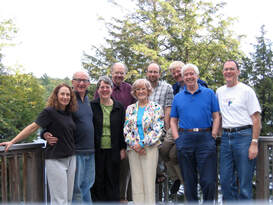 Don had a profound influence on my life in many ways, not the least of which was helping to recruit me to Toronto and the Rotman, where a few years later Cheryl Grady and I got married. I know I am just one of countless people that Don has influenced in many ways, and this influence will continue for many years to come despite his sad and untimely passing. Today at the annual workshop for the Database Project of the Toronto Dementia Research Alliance, Sandra Black started with a tribute to Don and his long standing vision of both clinical research embedded in care and his shaping of the Ontario Brain Institute (OBI) as a funding and support framework for such projects. I would like to think that Don would have appreciated how the TDRA database project, in collaboration with the OBI's Brain-CODE database, is realising his vision. But beyond research Don also influenced the way I look at and try to manage my life. Something he once said to me in my early days at the Rotman has stuck with me and made me change my behaviour towards work-life balance. We were discussing colleagues and friends who had passed away and I think he had recently had the experience of losing someone without having spoken to them in some time. He said, make time to reach out to people you care about who are important in your life because by the time you get around to doing so it may be to late. His combination of seminal vision with the capacity to excite and emotionally connect with people made Don very special. I am very grateful to have had my life's course shaped by his vision and to have counted him as a friend. Don was one of the first people I met when I started going to MDRS meetings and hadn't met many people in the field yet. He befriended me there, and was always so friendly every time we met subsequently. I remember visiting his home in Toronto once, picking up some music at a shop on the way, and then he happily played one of my new CDs on his new stereo set-up, loudly, even though it wasn't the type of music he usually enjoyed. Fond memories.
I first got to know Don personally around 1990 when he was establishing the Rotman Institute. As well as being an insightful and creative research scientist who made seminal contributions to our understanding of frontal lobe function, he was warm-hearted, generous and fun-loving. I have especially fond memories of listening to jazz with him in a Toronto nightclub, and of attending an uproarious holiday party at his home in the city. My condolences to his family, friends and colleagues. He will be much missed.
Learning about Don’s passing caused me to reminisce about our common interests and times together. I always admired Don’s creating the Rotman Research Institute’s blend of experimental and clinical neuropsychological approaches to addressing issues of importance to cognitive neuroscientists. I had the opportunity to visit him there several times and always enjoyed his company and listening to his thoughtful approaches to trying to understand the functions of the human frontal lobes. Although I didn’t know the details of how he constructed and implemented his vision for the interaction between clinical care and research at the Rotman, I imagined that it required a fair amount of hard work, ingenuity, and certainly a bit of magical persuasion. Don and I occasionally went out to dinner at meetings we both attended and enjoyed sampling different kinds of foods and live music and one of those dinners afforded me first-hand evidence of Don’s persuasiveness. We were in Vancouver at a meeting and we decided, along with Bonnie Levin from the University of Miami, to eat at a very nice French Restaurant that had booths in corners allowing for a quiet, private and intimate evening. They seated us in the middle of the restaurant and we began conversing about all kinds of topics. Eventually we had a lively discussion about Don’s leaning towards a Jesuit life when he was younger. I asked him about wearing a robe with a hood and he acknowledged that he had and then demonstrated what he had looked like by putting a cloth napkin on his head and looking quite serious. I became lost in that spiritual moment and donned a cloth napkin myself. We continued the conversation for a short period of time and suddenly we noticed quite strangely that almost everyone in this small restaurant had put a cloth napkin on their heads and were looking at us as if they were waiting for the next move. Well, Don had the next move in mind and rose up from his chair and I did the same and then we proceeded to walk around the restaurant blessing people and eventually marrying one couple sitting in one of the booths. We then returned to the table. Neither the waiters nor the owner seemed disturbed by what must have appeared as an unusual activity in their restaurant. The fact that Don was able to make strangers feel comfortable doing something a little out of the ordinary and having fun at the same time helped me better understand what can only be considered a rare ability to be persuasive and comforting at the same time. I am grateful to have known Don and I hope my memories of him continue to remind me of the importance of dedication, having an intellectually demanding and thoughtful vision, of spontaneity, and of being kind. Although I wasn’t able to say goodbye to Don before he passed, our experiences together never left my memory and he remains there today. I am grateful to have known him
|
Obituaries written by Don's friends and colleagues: American Psychologist Brian Levine and Gus Craik. Read it here The Journal of Cognitive Neuroscience Mick Alexander, Terry Picton & Tim Shallice Canadian Psychologist Gus Craik & Brian Levine Read it here. Appreciation of Don in the Globe and Mail. Click here. Call for Abstracts: Special Issue of Journal of Cognitive Neuroscience in honour of Don Stuss Click here for details. Archives |
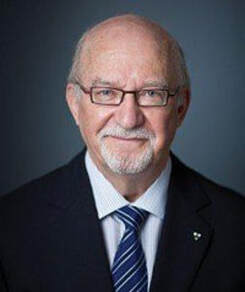
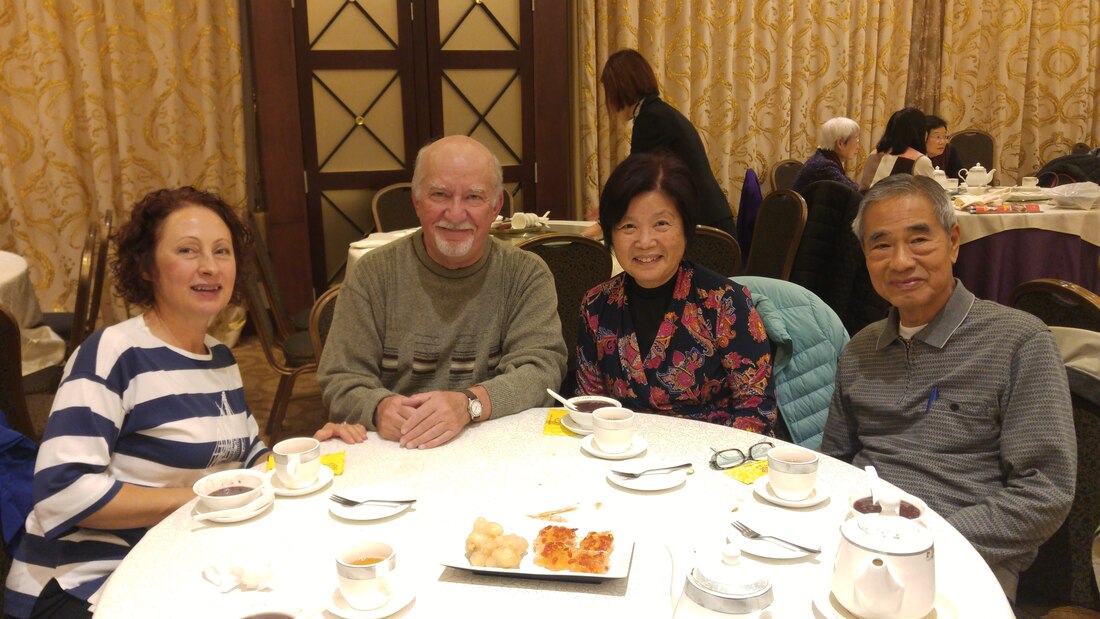
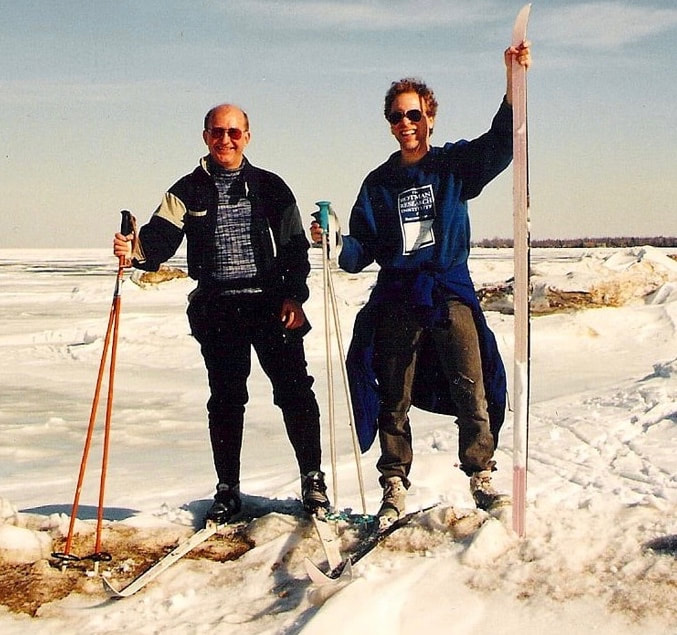
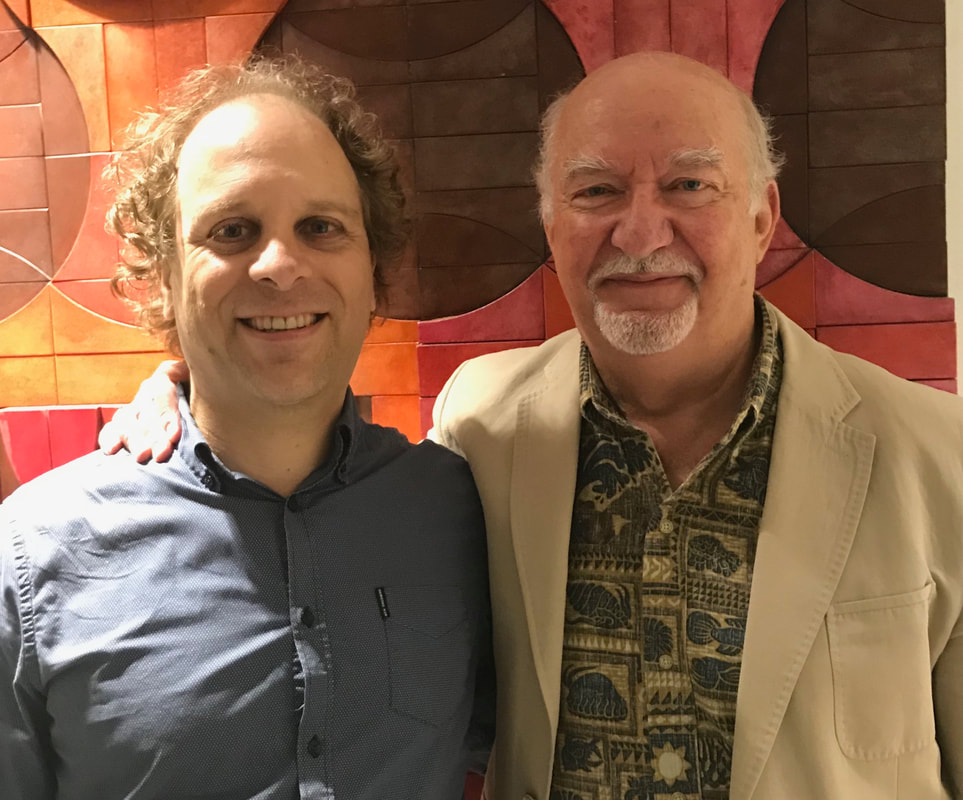
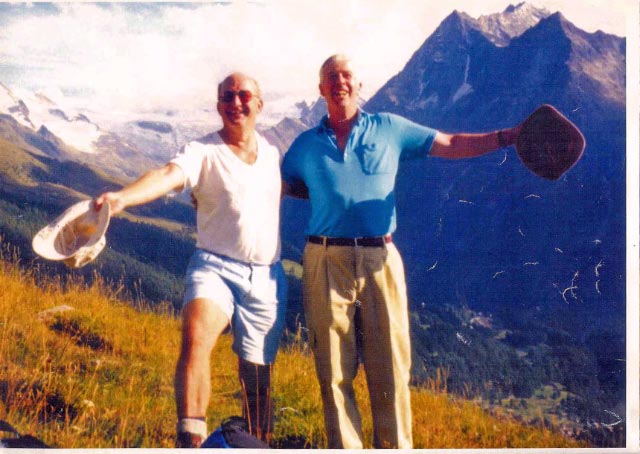
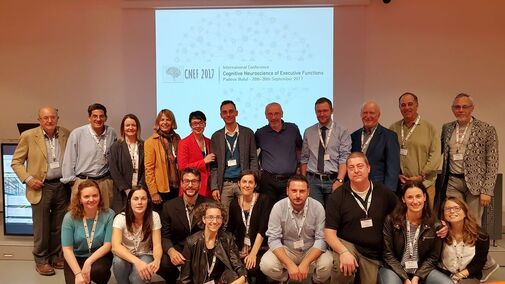
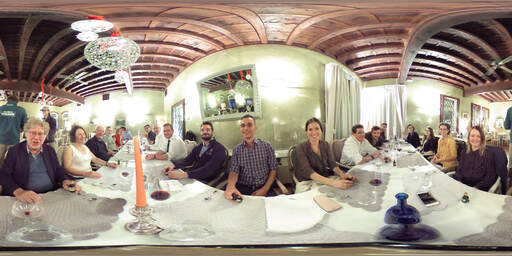
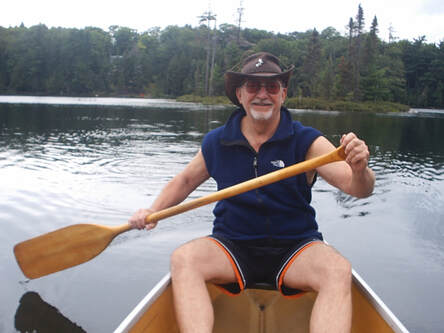
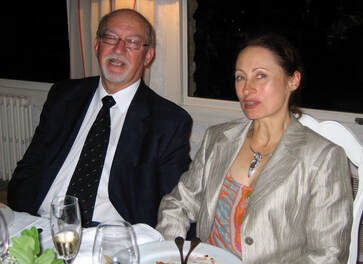
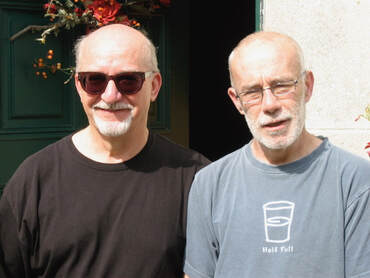
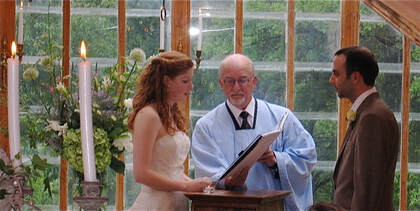
 RSS Feed
RSS Feed
